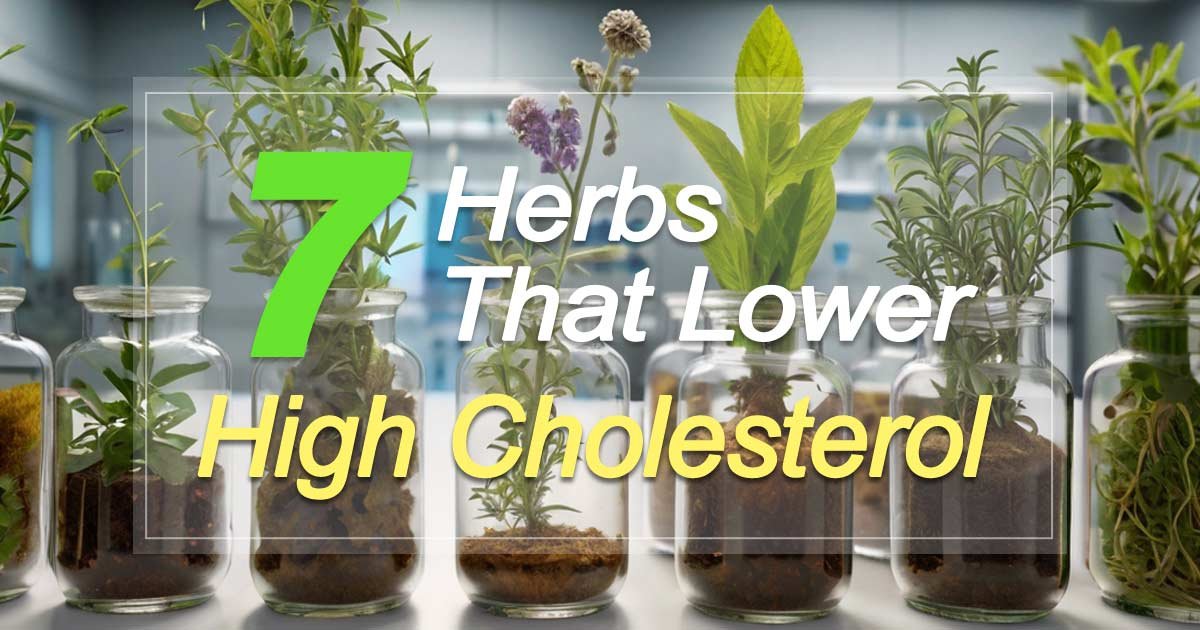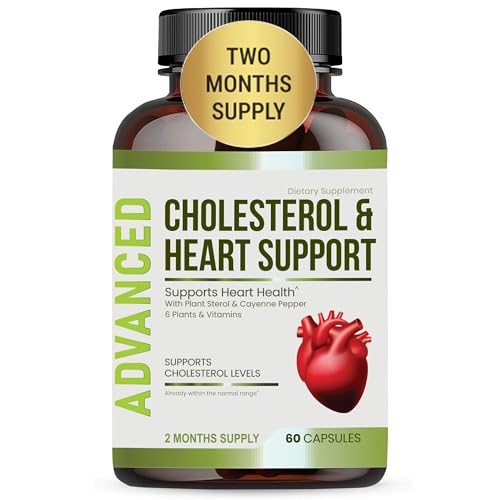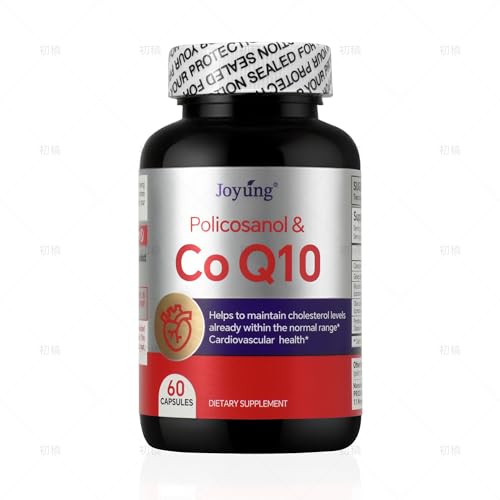There’s this moment, usually after your doctor leans back with that slightly concerned look, when you hear it: “Your cholesterol is a bit high.” Cue the mental checklist of grilled cheese regrets, late-night pizza, and that phase where you thought granola bars were healthy.
But let’s pause right there. Before we dive into panic, prescriptions, or swearing off cheese forever, let me tell you something—nature’s had your back way before statins were a thing. And I’m not saying ditch your doctor. But I am saying… there are powerful herbs that lower high cholesterol. You hear that right!. There’s a green, earthy world of medicinal herbs and mushrooms that have been quietly whispering solutions for centuries.
Let’s talk about seven of them that actually do something when it comes to high cholesterol. Not just folklore—I’m talking solid science backed by clinical trials, old-world wisdom, and a little personal experience thrown in for good measure.
High Cholesterol Herbs
A Quick Comparison: Herbal Heroes vs. Cholesterol Villains
Here’s a simple breakdown to compare how each herb or mushroom works against cholesterol:
| Herb/Mushroom | Key Compound(s) | Primary Action | Best Taken As | Notable Quirk |
|---|---|---|---|---|
| Garlic | Allicin | Lowers LDL, BP | Raw, roasted, capsules | Strong smell, potent raw |
| Hawthorn Berry | Flavonoids, procyanidins | Improves circulation, lowers LDL & TG | Tea, tincture, capsules | Tart, slightly fruity |
| Artichoke Leaf | Cynarin | Inhibits cholesterol production, detox | Tincture, capsules | Bitter, liver-friendly |
| Fenugreek | Saponins | Reduces absorption of dietary cholesterol | Seeds (ground), tea, powder | Smells like maple syrup |
| Turmeric | Curcumin | Lowers LDL, reduces oxidation | Powder, tea, capsules | Needs black pepper for full absorption |
| Holy Basil (Tulsi) | Eugenol, ursolic acid | Lowers cholesterol, reduces stress | Fresh tea, extract | Slightly spicy, adaptogenic |
| Reishi Mushroom | Triterpenes, beta-glucans | Reduces LDL, TG, prevents plaque | Decoction, capsules | Tastes like bark—powerful, earthy brew |
1. Garlic (Allium sativum)
First off, garlic doesn’t just ward off vampires. It kinda fights the real-life bloodsuckers too—bad cholesterol (LDL) and high blood pressure. Garlic has this compound called allicin, which gets released when you crush or chop the cloves. That’s the magic stuff. Studies have shown that allicin can help reduce total cholesterol and LDL, especially when taken consistently.
I’ve got a friend who started roasting a few cloves a night with dinner—nothing fancy, just some olive oil and sea salt. Within six months, his numbers dropped. Doctor was stunned. Side effect? He also became a better cook.
But be warned: raw garlic is strong. It burns a little going down and your breath might clear a room. Worth it? Maybe.
2. Hawthorn Berry (Crataegus spp.)
Hawthorn is one of those herbs that feels like a secret garden find—tart, a little mysterious, and deeply tied to heart health in traditional European medicine.
These tiny red berries help dilate blood vessels and improve circulation. But what’s less known? They can help reduce cholesterol buildup in the arteries. Some studies suggest they help reduce triglycerides and LDL, while possibly increasing HDL (the good one).
Hawthorn tea is lovely. Slightly fruity with a bit of a tang, like rosehips and red apples had a baby. I like mine with a drop of raw honey—though I know, I know, sugar and cholesterol. Everything in balance.
3. Artichoke Leaf (Cynara scolymus)
Artichoke isn’t just a fancy pizza topping or something you dip in aioli. The leaves—those tough, bitter outer parts—are where the real power is. Artichoke leaf extract has been studied quite a bit, and it turns out it’s great for your liver and your cholesterol.
It works by inhibiting HMG-CoA reductase, the same enzyme targeted by statins. That’s a big deal. Plus, it stimulates bile production, which helps the body get rid of excess cholesterol.
It’s bitter, yeah. Think dandelion on steroids. But bitterness in herbs often signals detox power. I take it as a tincture. Quick squirt under the tongue. You make a face, but your arteries smile.
4. Fenugreek (Trigonella foenum-graecum)
Okay, fenugreek is like that cousin who’s weird but surprisingly useful. Smells like maple syrup (really—open a bag of the seeds and it’s like breakfast). But fenugreek contains saponins, compounds that help reduce the absorption of cholesterol in the intestines.
Some folks sprinkle it on yogurt, others make a tea. Personally? I grind the seeds fresh and use them in curry blends. Adds depth and a subtle sweetness, plus I get the cholesterol-lowering perks without even trying.
Just don’t go overboard—it’s potent. And yes, your sweat might start to smell vaguely like pancakes.
5. Turmeric (Curcuma longa)
Turmeric isn’t just a wellness trend for golden lattes and overpriced smoothies. It’s a legit medicinal root. The active compound, curcumin, has antioxidant and anti-inflammatory properties that do wonders for cardiovascular health.
More specifically, turmeric helps reduce LDL and prevents it from oxidizing (which is when it becomes really nasty). It also boosts HDL and may reduce plaque buildup in arteries. That’s a triple threat right there.
Try it in food, not just capsules. A little turmeric with black pepper (to increase absorption) in soups, stews, or stir-fries—it’s earthy, warm, and grounding.
Also, pro tip? Make a turmeric chai with oat milk. Cozy and good for the ticker.
6. Holy Basil (Ocimum sanctum / Tulsi)
Tulsi is revered in Ayurvedic medicine for a reason. It’s calming, slightly spicy, and surprisingly powerful for cholesterol. Research suggests tulsi can lower LDL and total cholesterol, while also acting as an adaptogen—helping your body handle stress.
And if you didn’t know, chronic stress is one of those sneaky contributors to high cholesterol.
I keep a little pot of tulsi on my windowsill. When the leaves get big enough, I steep them into tea. There’s something about the ritual of it—plucking fresh herbs, boiling water, waiting. It slows you down. Sometimes that’s half the medicine.
7. Reishi Mushroom (Ganoderma lucidum)
Now we’re getting into fungal territory, and reishi is the granddaddy of medicinal mushrooms. Used for thousands of years in Chinese medicine, reishi’s benefits are wide-reaching—immunity, liver health, sleep—but its effects on cholesterol are particularly fascinating.
Reishi contains triterpenes and beta-glucans, which help lower LDL and total cholesterol. It also reduces triglycerides and prevents arterial plaque. Pretty impressive for a tree mushroom that tastes kind of like bark.
I won’t lie, reishi tea is an acquired taste. Earthy, bitter, grounding. But over time, it becomes comforting—like forest floor soup. Capsules exist, sure, but there’s something more… honest about brewing it yourself.
Herbs That Lower High Cholesterol?
Now, none of these herbs are magic pills. They won’t erase years of deep-fried decisions overnight. But taken consistently, paired with decent sleep, a little movement, and maybe laying off the processed cheese squares… they work.
Herbal medicine isn’t about instant results—it’s about tuning into your body, giving it the tools it needs, and trusting in the slower, wiser rhythms of nature. It’s like planting a garden. The changes are subtle, almost invisible at first—but one day you look up and things are blooming again.
And if that isn’t healing, I don’t know what is.
Best Selling Supplements for Cholesterol
Article Sources
At AncientHerbsWisdom, our content relies on reputable sources, including peer-reviewed studies, to substantiate the information presented in our articles. Our primary objective is to ensure our content is thoroughly fact-checked, maintaining a commitment to accuracy, reliability, and trustworthiness.
- Ried, K. et al. (2013). Effect of garlic on serum lipids: an updated meta-analysis. Nutrition Reviews.
- Holubarsch, C. et al. (2008). Hawthorn extract for treating chronic heart failure. Cochrane Database of Systematic Reviews.
- Rondanelli, M. et al. (2013). Clinical use of artichoke leaf extract in lipid metabolism. Phytotherapy Research.
Sowmya, P. et al. (2017). Effect of fenugreek on lipid profile: A review. International Journal of Pharmacy and Pharmaceutical Sciences. - Aggarwal, B. B. et al. (2007). Curcumin: The Indian solid gold. Advances in Experimental Medicine and Biology.
- Mondal, S. et al. (2011). Scientific validation of tulsi for human health: An overview. International Journal of Ayurveda Research.
- Gao, Y. et al. (2004). Effects of Ganoderma lucidum on lipid profile and antioxidant status in hyperlipidemic patients. Journal of Medicinal Food.
- Children and Plant-Based Herbal Use Safety: Tradition and Common Sense - January 25, 2026
- Sustainability in Vegan Herbal Sourcing: Why Popular Plants Are at Risk - January 25, 2026
- Vegan Herbal Rituals: Simple Daily Practices Rooted in Tradition - January 24, 2026












